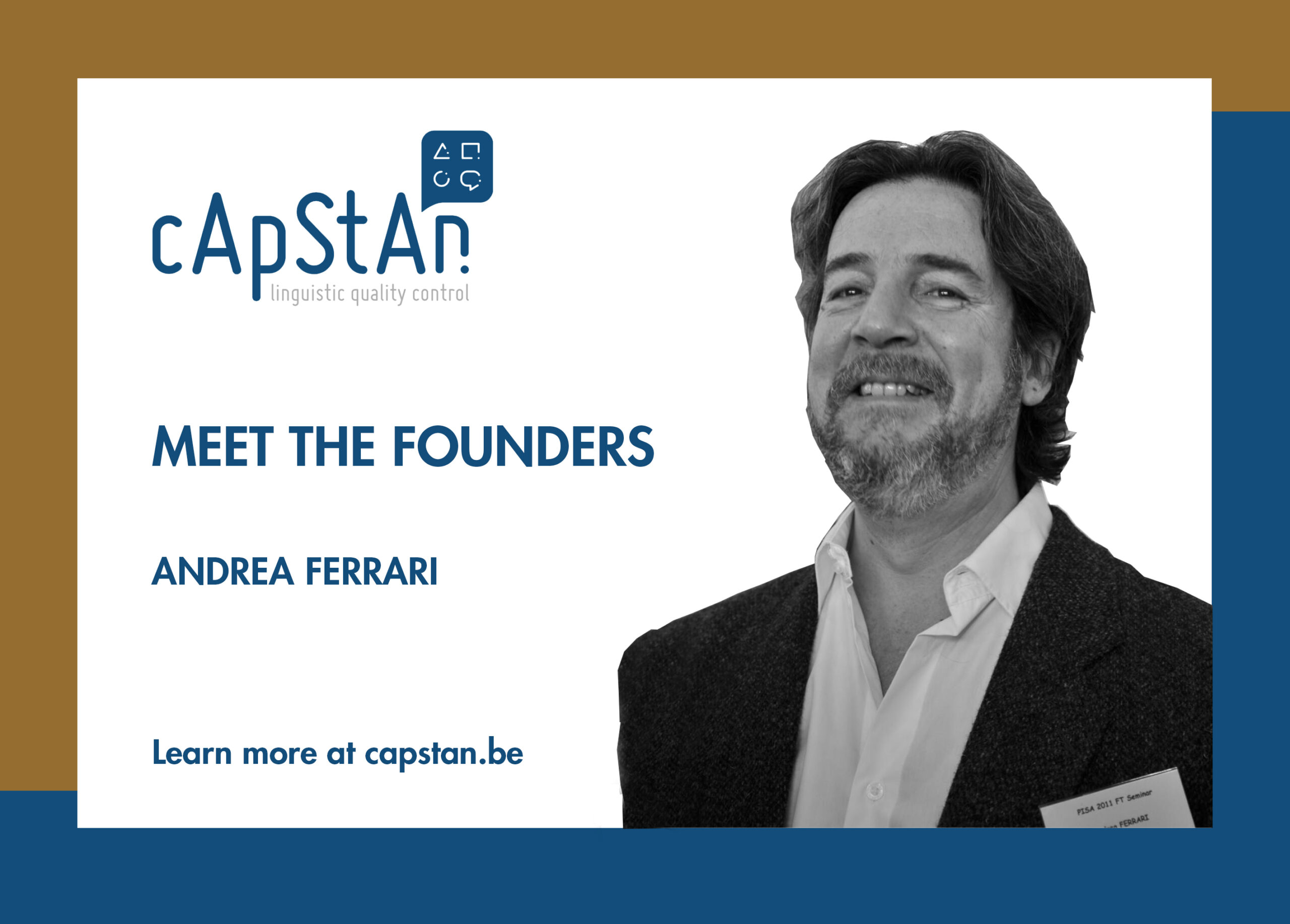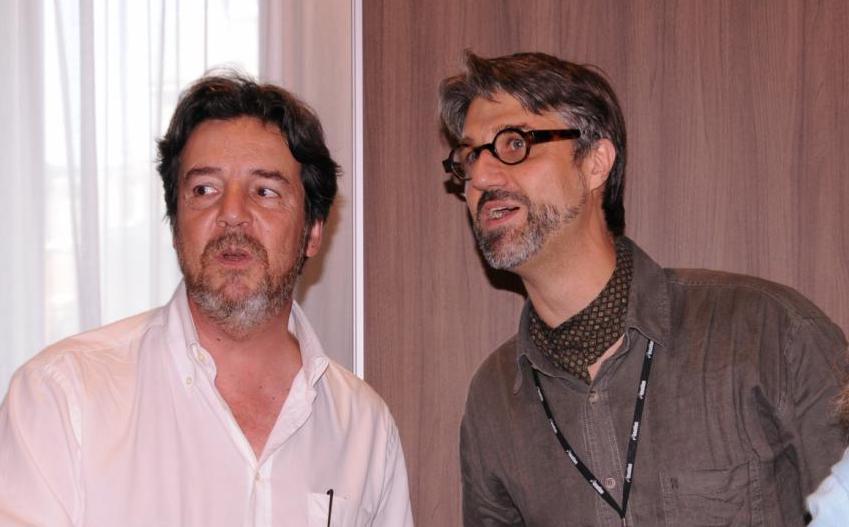
“Navigating the Seas of Linguistic Quality: A Chronicle of cApStAn’s 22-Year Odyssey”
I am Andrea Ferrari, an Italian national, born in Peru. I was exposed to a multicultural environment from early on, living and studying in Canada, Italy, Australia, Greece, and Belgium. I earned a degree in Business Engineering from the Solvay Business School, Brussels, did a stint with a major multinational (Procter & Gamble) but switched to self-employment in 1987, as a freelance translator and speaker.
In 1999, my professional trajectory intersected with a transformative opportunity. Steve Dept, whom I had met earlier, was spearheading the organization and coordination of linguistic control for the OECD’s Programme for International Student Assessment (PISA) alongside researcher Aletta Grisay from the University of Liège. Checklists were meticulously crafted, and the role of verifiers was precisely defined. The translation verification challenge extended well beyond the technicalities; it was a time when the internet was in its infancy and establishing communication and training for verifiers across over 30 national versions and 25 languages presented a unique set of hurdles.

The need for standardization compelled us to organize a training seminar, which took place in Brussels in November 1998—a date and venue that became synonymous with the birth of cApStAn. The seminar brought together 25 linguists, most meeting for the first time. Less than two years later, in 2000, Apor, Steve, and I founded cApStAn Linguistic Quality Control. Apor eventually moved on to join the European institutions, but Steve and I continued to steer cApStAn’s course, a journey that has spanned 22 years.
The initials of the three cApStAn founders form the cApStAn name: the company of Apor, Steve and Andrea. Capstan is also a marine term; it is a winch, a rotating machine used to multiply the pulling force of seamen. A five-ton anchor can be hoisted by the pulling force of just three sailors pushing the capstan’s levers. In cApStAn the first three “sailors” were Apor, Steve and Andrea, and the five-ton anchor was the mammoth project OECD PISA.
As cApStAn expanded, our team grew organically. Whether in Brussels or Philadelphia, our offices became lively hubs where creativity and collaboration thrived. This growth wasn’t just about spreading across different locations, it was a reflection of the diverse talents we were fortunate to bring together. Our core team, comprising now 24 dedicated individuals from around the globe, truly forms the backbone of cApStAn.
The success of cApStAn isn’t solely about the projects we have taken on or the milestones we have hit, it is equally about the relationships we have forged. The collaborative spirit within our core team and the broader network of hundreds of linguists and subject matter experts has consistently fuelled our inspiration. The diverse talents within cApStAn have given rise to a lively and adaptable work culture, where everyone’s contributions are valued and celebrated, and each day brings fresh opportunities for learning and growth.
In these past 22 years I have had the privilege of working with exceptional individuals who not only brought their professional expertise but also their unique personalities and perspectives. The journey with cApStAn has been more than a professional endeavour; it has been a shared adventure marked by collaboration, friendship, and shared aspirations for excellence.
Next year I will be retiring from “active duty”, though I may still lurk in the background doing what I have been doing already for some years: mentoring, advising, and standing behind our younger staff – taking great pleasure and pride in their achievements.